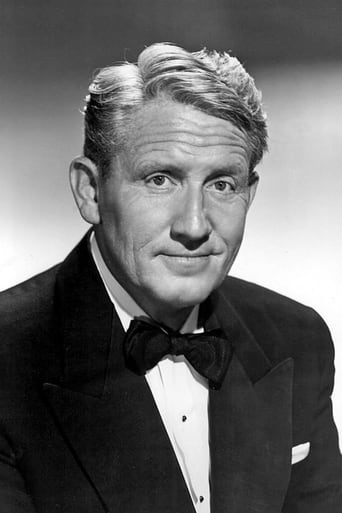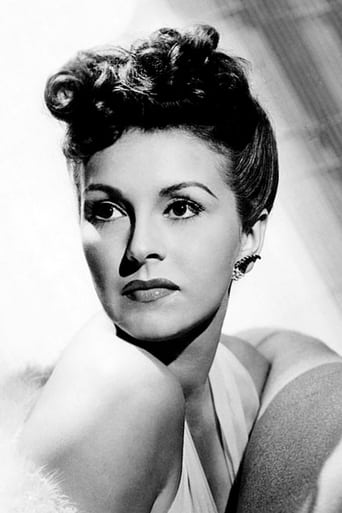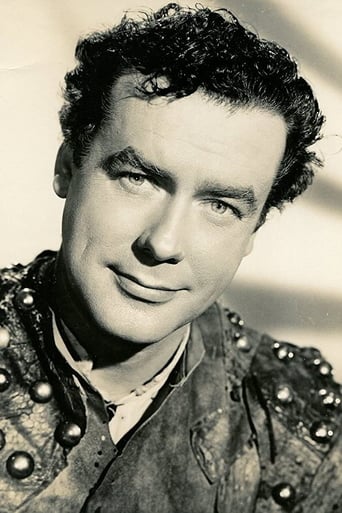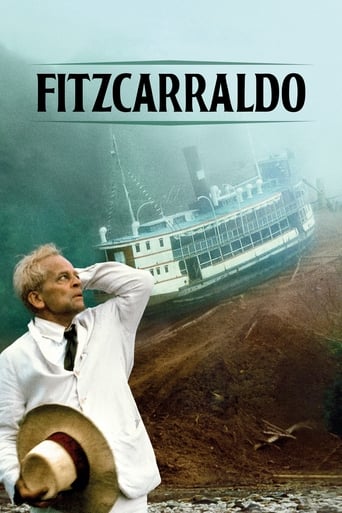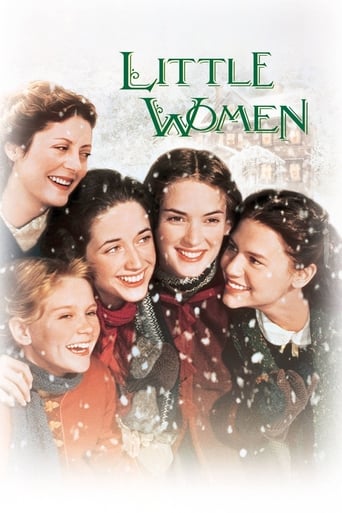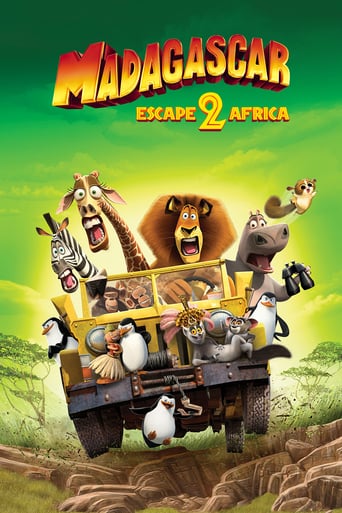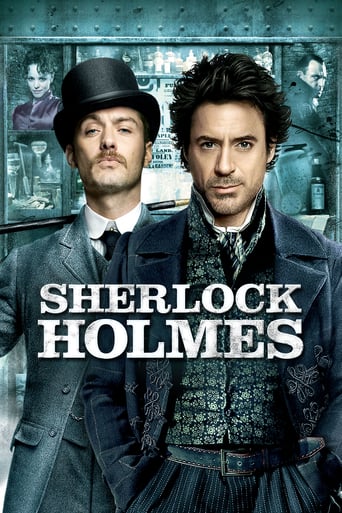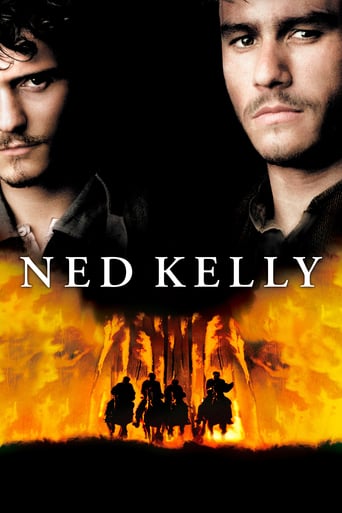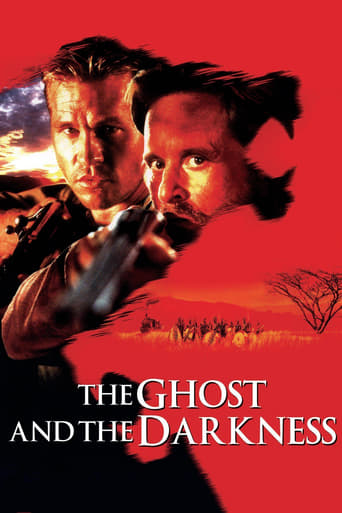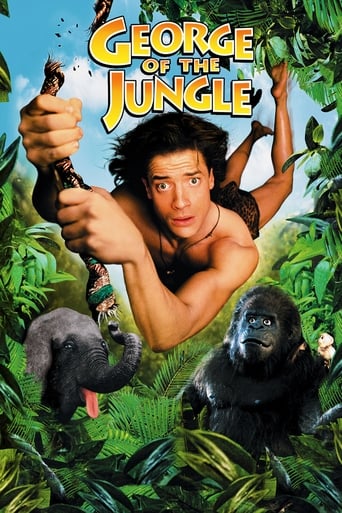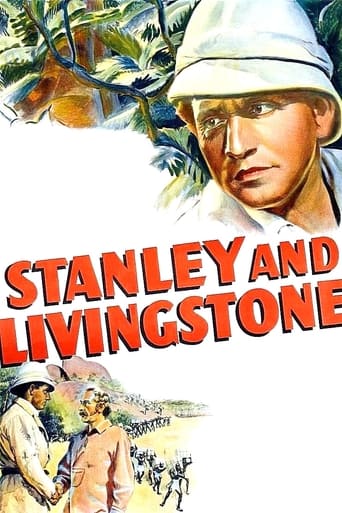
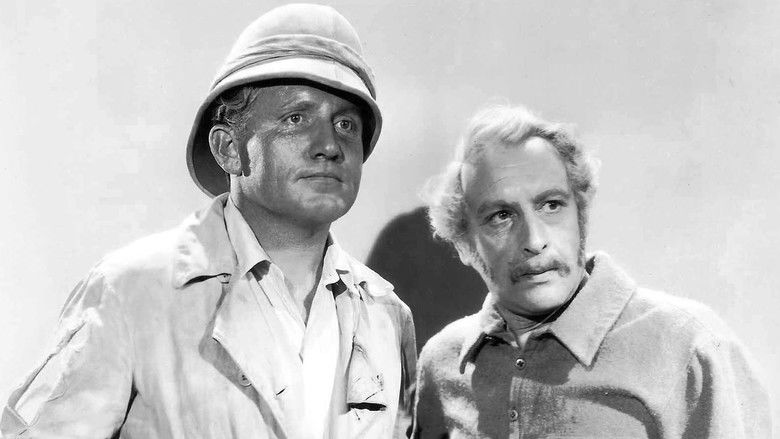
Stanley and Livingstone (1939)
When American newspaperman and adventurer Henry M. Stanley comes back from the western Indian wars, his editor James Gordon Bennett sends him to Africa to find Dr. David Livingstone, the missing Scottish missionary. Stanley finds Livingstone ("Dr. Livingstone, I presume.") blissfully doling out medicine and religion to the happy natives. His story is at first disbelieved.
Watch Trailer
Cast


Similar titles
Reviews
I wanted to like it more than I actually did... But much of the humor totally escaped me and I walked out only mildly impressed.
Exactly the movie you think it is, but not the movie you want it to be.
what a terribly boring film. I'm sorry but this is absolutely not deserving of best picture and will be forgotten quickly. Entertaining and engaging cinema? No. Nothing performances with flat faces and mistaking silence for subtlety.
It is an exhilarating, distressing, funny and profound film, with one of the more memorable film scores in years,
Spencer Tracy is Henry Stanley, whose editor at the New York Herald, sends him to Africa to seek out the lost figure of Dr. Livingtone, missionary, who is somewhere out there on the veldt if he's not dead. Others have tried before and come back broken men. Nancy Kelly is in there to issue dark warnings and provide something resembling a romantic interest that proves Stanley is heterosexual.Stanley succeeds. After much travail, after stumbling through vast wastelands where the hand of man has never set foot, he and his comic sidekick and his native bearers stumble into a remote village and find the amazed Dr. Livingstone, who looks exactly like Sir Cedric Hardwicke. The ragged, exhausted Stanley stares wide eyed, gulps, and asks hesitantly, "Say, where's the nearest toilet?" No, that's not it. I'm afraid I wasn't taking notes. "Can a fella get a cold beer around here?" That can't be right either. "One small step for a man?" Well, it will come to me.In any case, Livingstone, having found his bliss, refuses to leave. There's too much work for him here. Stanley is a little surprised and disappointed but no matter, he has his story. The problem is that no one back home believes him and he's denounced roundly by all the pompous authority figures. The climactic existential act is fictitious.You must enjoy these old black-and-white biographies and historical pieces from the 30s. There's nothing to dislike. The pretense at historical accuracy is always perfunctory. There's no confusion, no ambiguity. A man has found his Calvinist calling and if he misbehaves a little along the way to his goal, why he shapes up properly before the end. (He'd better -- or else.) Spencer Tracy is always reliable. His face has the magnetic appeal of a hard-boiled egg yet he never really steps wrong in any role. He's an easy guy to identify with because he looks so exceptionally ordinary. But he could have used a sidekick with funnier lines. I suppose the audiences, somewhere, were supposed to be amused by Walter Brennan's old Injun fighter, but it strikes us today as corny beyond belief. In Africa, he complains, "These folks don't know nothing about flapjacks and sour belly." And he's disgruntled to find that the Red Sea is the same color as any other ocean. It's hard to tell who the writers were aiming at. Still, there may be some residual educational value in the film. I wonder how many high school kids today could identify Stanley or Livingstone. Not as many as we might like to think, since neither the figures nor their story have had any impact on anyone's body sheath. God forbid that we ask about Sir Richard Burton the First. Mungo Park might be identified as a national monument in Georgia.That reminds me. The BBC produced a superb miniseries, "The Search For the Nile", in 1971 that gave a more accurate picture of Henry and Livingstone, but I don't think it's available.
Stanley and Livingstone (1939) *** 1/2 (out of 4) Spencer Tracy plays Henry M. Stanley, an American explorer and newsman who is given the job of traveling to Africa so that he can see whether or not the missionary Dr. Livingstone (Cedric Hardwicke) is dead. When Stanley shows up in Africa, after a year's journey, he finally finds Livingstone alive and sees that he's trying to bring religion to Africa as well as trying to educate the people. Since Africa is still seen as a mystery to the outside world, both men must convince the rest of the world that Africa isn't the "dark country" but a place that should be explored. I was extremely caught off guard with how well made and entertaining this movie was. I hadn't heard too much about it over the years but it was certainly a delight to finally watch it and discover it to be a real gem. I've heard that a lot of the story was made up or changed to make it seem better, which is fine with me since this is a movie and not a documentary. As a movie the film contains a very big heart towards the people in Africa, who at the time, were still being sold as slaves and looked at as cannibals. There's also a lot of nice footage of the jungles of Africa, although it's clear that neither Tracy or Hardwicke are ever there since they are never in the scenes. The production value of the fake Africa look very good and the direction is very strong throughout. It should go without saying but Tracy delivers another great performance and his final speech at the end is really heartfelt. You can really see the pride, passion and anger floating out of Tracy to the point where you'd think he was the real Stanley delivering his message. Hardwicke actually steals the film in his few scenes in the movie. The love and compassion he gives off is a great joy to watch. Nancy Kelly, Richard Greene, Henry Hull, Walter Brennan and Henry Travers all deliver nice supporting work.
I'm still waiting for this underrated gem to be put on DVD. I doubt if a lot people are familiar with this film, and that's a shame, and perhaps the reason it hasn't been put on disc. I remember being surprised how good it was the first time I saw it. I liked it even better the second time and even more on the third.What's to like? Well, Spencer Tracy, to begin with. It's also interesting to see this true story about a man living in the heart of Africa in a time when few white men had ever gone to that continent. Livinstone (Sir Cedric Hardwicke) also was a good witness for his Christian faith, and even made a strong admirer out of partner and skeptic Stanley, played by Tracy. Completing the fine cast in this film are Nancy Kelly (who looks beautiful), Walter Brennan and Charles Coburn.The film could have been a spectacular visual one if it had been done in Technicolor, since the locations are in Africa, not some Hollywood set....but the back-and-white photography is still good. I'm not complaining. Great film.
Hollywood brings us Uganda, Kenya and Tanganyika as it will never be seen again. The scenery is electrifyingly beautiful. But this is no story for the sake of a travelog...It is a beautiful account of the true historic struggles of newspaperman, Henry Stanley to find "lost" missionary, Dr. David Livingston.Spencer Tracy, Cedric Hardwicke, Charles Coburn, Nancy Kelly and Walter Brennan bring us wonderful performances full of humanity and depth. One fine scene in the movie when Stanley encounters extremely hostile adversaries on his way to find Livingston is just about one of the most exciting sequences I have seen on the screen and should there be only one reason to see this movie, then this is it. It is electrifying to see what certainly must have been true African citizens partake in such a very authentic looking ambush. No disrespectful depiction of Africans as seen so often in Tarzan movies will you see here.Rarely does Hollywood brings us such respectful detail in its depiction of the African citizen as he was when they encountered outsiders. Also, the citizens do not have that awful spurious look that most depictions of Africans are so prone to have from Hollywood in its racism of the past. But then 1939 was a landmark year, wasn't it?There is so much history that we are inclined to forget too easily and relegate to the dust of the shelves of history.This is one story that must be heard - if not for anything else than for its sheer humanity.Exhilarating, Tender, Human, Awe-Inspiring, Wonderful, See It!


